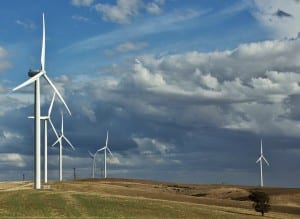Is Amber Rudd’s energy policy ‘reset’ innovation-friendly?
By ucftwas, on 4 November 2015
 by Will McDowall and Andrew ZP Smith
by Will McDowall and Andrew ZP Smith
Innovation is one of those uncontroversially good things that politicians love to champion. For those worried about the economy, innovation is agreed to be a fundamental driver of long-term economic growth. For everyone worried about the environment, innovation is crucial for decoupling that growth from environmental damages, and achieving the deep reductions in emissions that are necessary.
So far, so much agreement. But academics, policy analysts and commentators have often disagreed about the detail of how best to drive innovation, particularly in clean technologies. There are some economists who argue that, beyond some support for basic R&D, government should be involved as little as possible. They argue that innovation is too uncertain for governments to engage in: it’s private actors that should take on the risks and rewards of developing the technologies and systems of tomorrow. After all, who other than businesses can really know what consumers will demand? (more…)
 Close
Close




